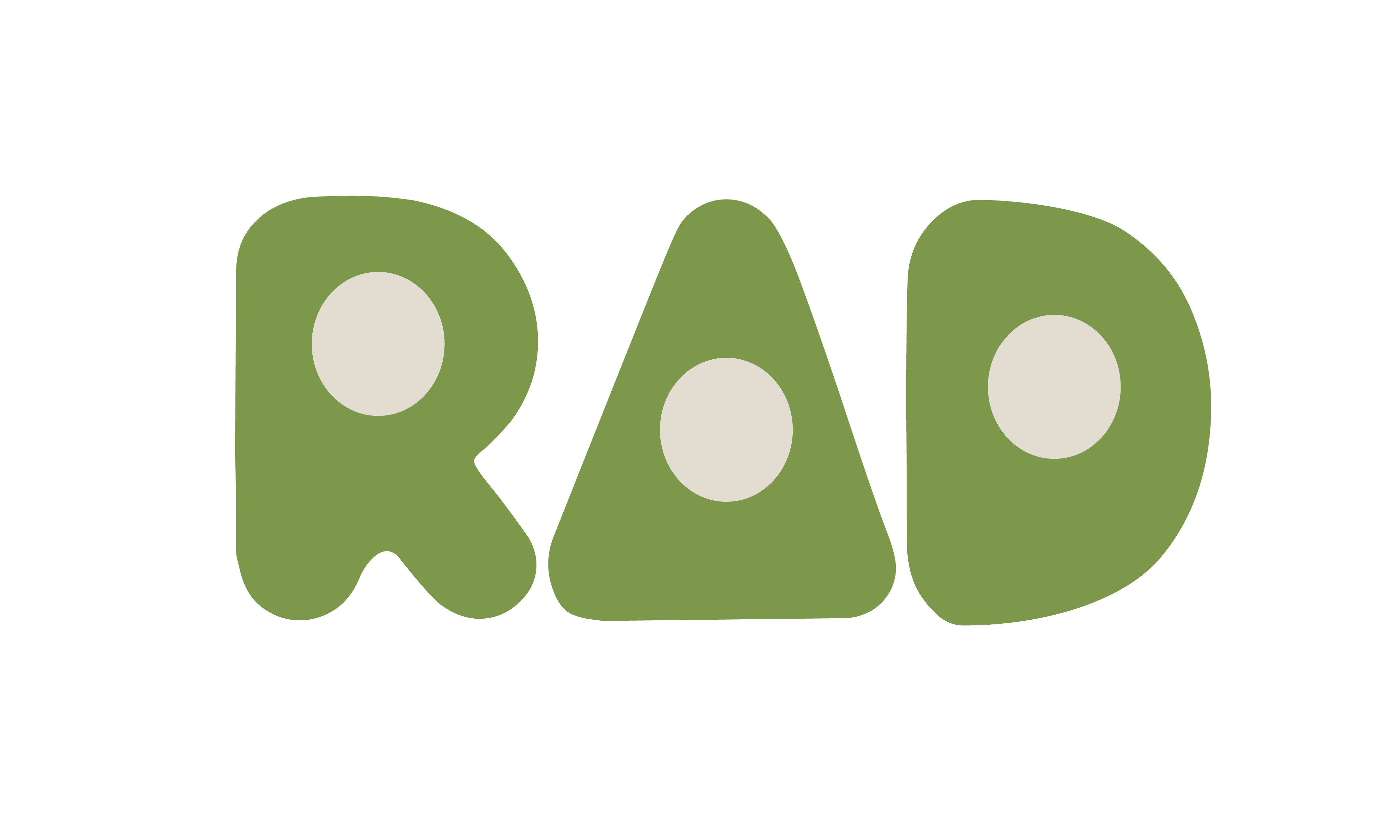
Get the App
The app
Recipe guide
Resources
Whether it’s soccer or football, track and field or hockey, sports is a powerful tool that not only brings people together but can help build confidence, community and respect.
Let’s take a look at how a simple soccer game is helping a small community in Bolivia move closer towards greater gender equality.
In Pucarani, outside of La Paz, Adela, a long-time women’s rights activist and community leader is already seeing changes in attitudes after men and women come together to play.
“The sisters are awakened,” says Adela, a former leader in the Bartolina Sisa Confederation, an organization of campesina and Indigenous women in Bolivia with more than 100,000 members. “The young people are happy; they’ve changed.”
– Jane Doe, 3rd-Gen of family-owned AvocaDoe
“We pride ourselves on our sustainability initiatives.
It was heartbreaking to discard food that took a lot of effort to harvest, and might’ve nourished someone in need. RAD ensures we get more food into our customers’ hands and waste less.”
LEARN MORE
UNLEASH THE POWER
OF EVERY GIRL
WITH A GIFT OF HOPE
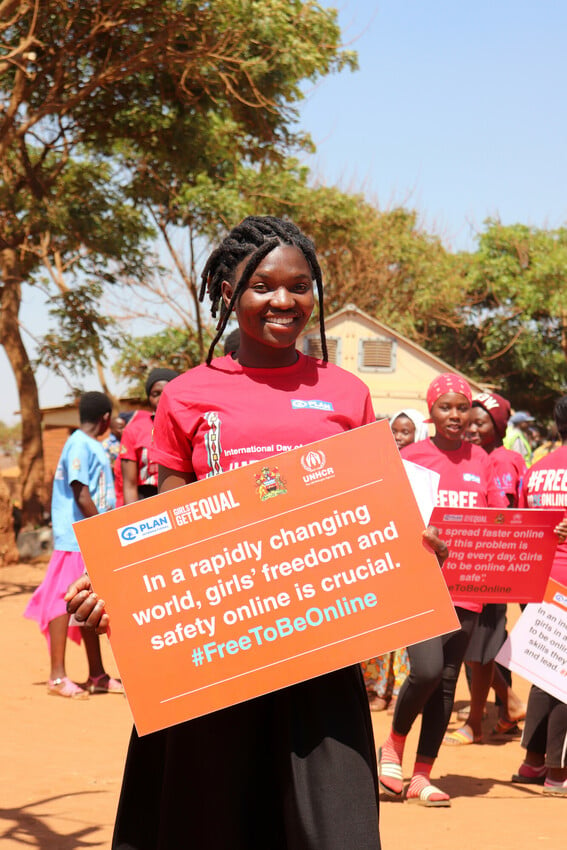
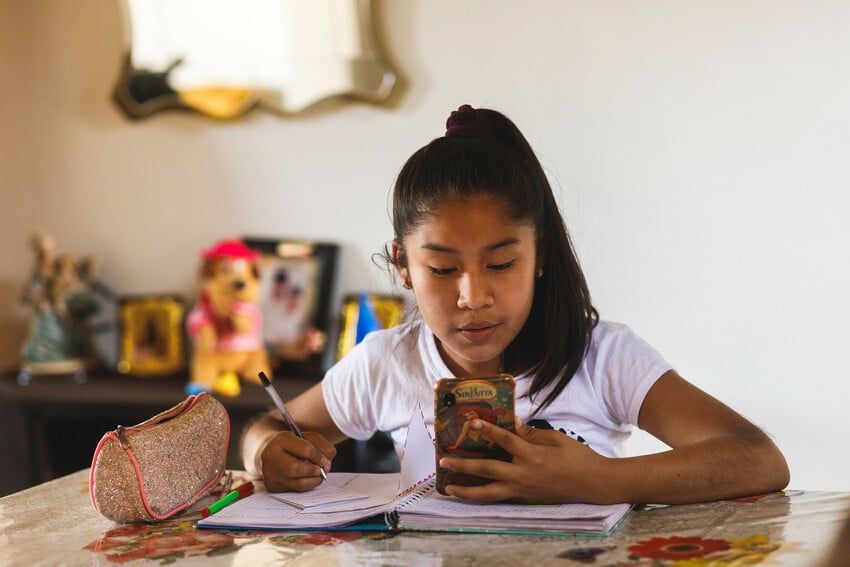
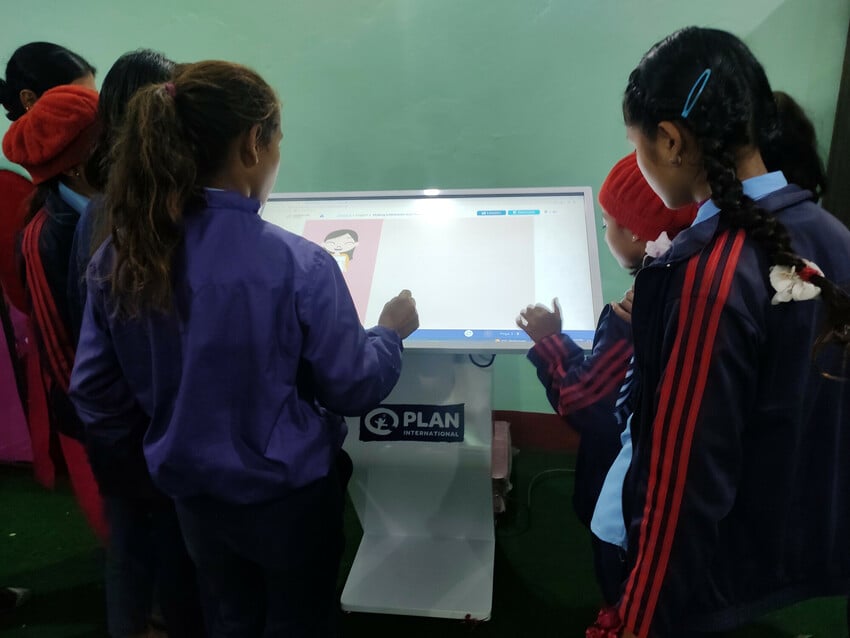
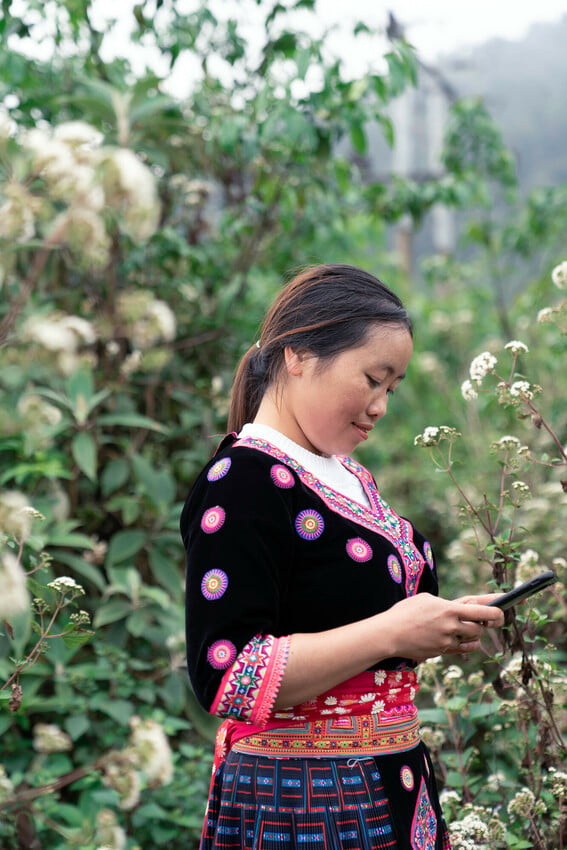
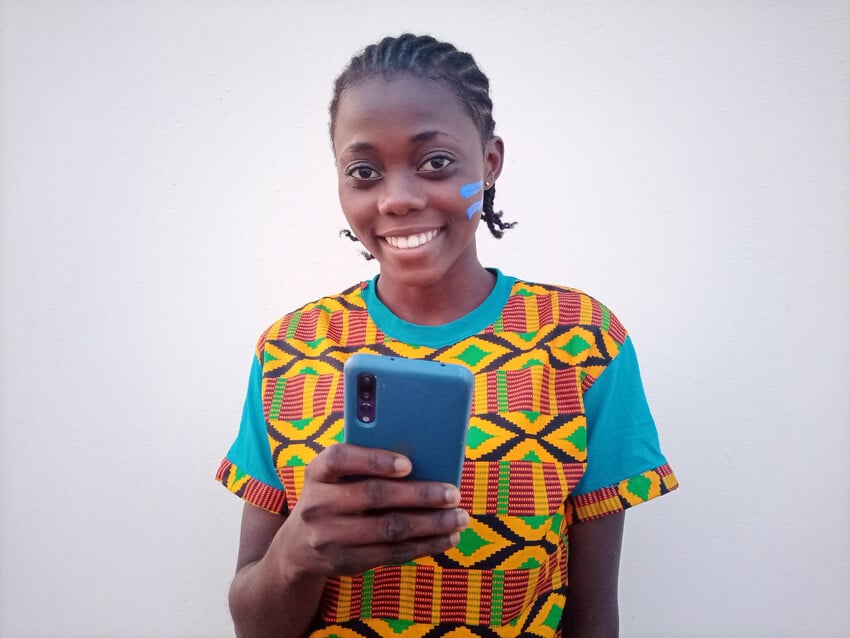
Thirteen-year-old Thembinkosi Sibanda works on her exercises in an open field outside her home in Zimbabwe. Staying active has been attributed to helping stay mentally and physically healthy.
A group of children play a game of pickup soccer in a dirt field in Zimbabwe. Team sports can help children gain confidence and camaraderie.
“Adults said that girls shouldn’t be on the fields,” recalls Lan Anh, who wasn’t allowed to play soccer when she was younger. But now she’s captain of her secondary school’s team. Her school is one of 20 schools participating in Plan International’s Safe Sport project in Vietnam. Before the project, a student survey found that 40% of girls felt they were treated unequally when playing sports, and 49% said they felt unsafe using sports facilities.
“Now I have the chance to play again,” says Lan Anh. “Sport is a way to embrace my personality. I have learnt new skills and feel more confident.”
Child-friendly safe spaces set up by Plan International like this one in Burkina Faso provide children with a safe place to seek protection and relief through sports and games. Violence and conflict from armed groups continues to be on the rise in the West African country, and these safe spaces ensure the some of the most vulnerable children get access to physical activities tailored to their needs.
A group of girls learn about self-defence in a village in Bangladesh.
The classes have created a community where girls can learn, share and educate each other.
Through the bond they make practicing karate and learning from Plan International’s Girl Power project, the girls are now inspiring advocates against child marriage.


According to Adela, learning how to recognize manifestations of macho culture and identify different types of violence in the community has helped participants recognize their power. empowered participants.
“Women have many ideas, but we weren’t allowed to speak,” says Adela, who believes discriminatory attitudes are starting to change. “I didn’t know how to defend myself from sexism and violence. But these workshops showed me how.”
The
FaIr PLay
Donate now
A soccer game in Bolivia is teaching men and women about gender equality on and off the field
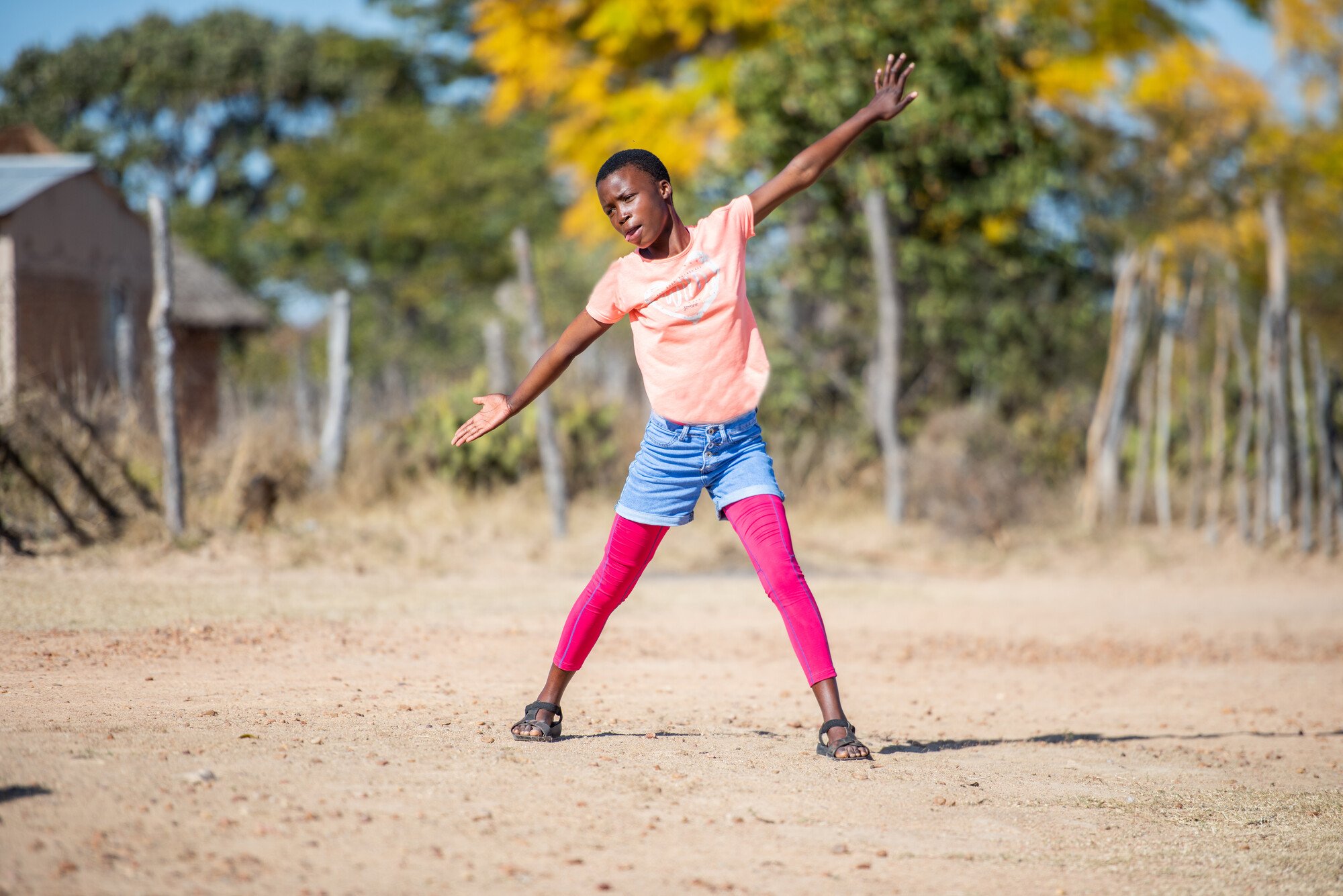

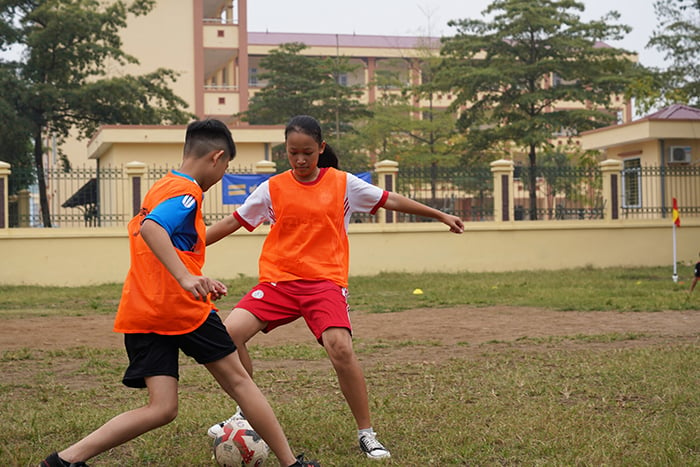
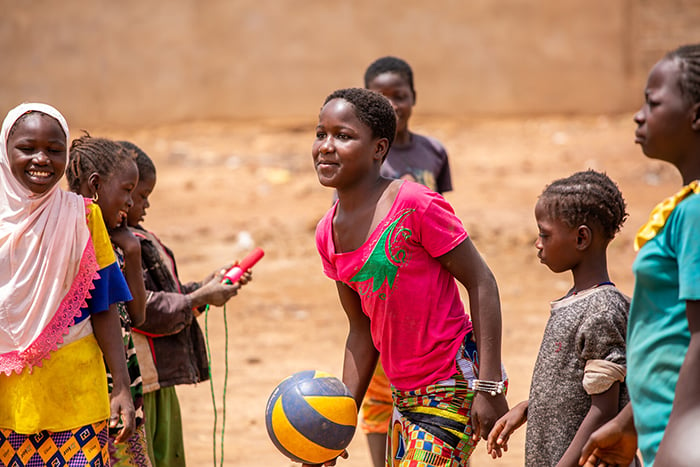


WU WEI
means 'without effort' and is a TAOIST PRACTICE of allowing outside forces to work
How We’re promoting
the power of sport around the world
Words and Design by Linda Nguyen
Reading time: 3 minutes
FAIR PLAY
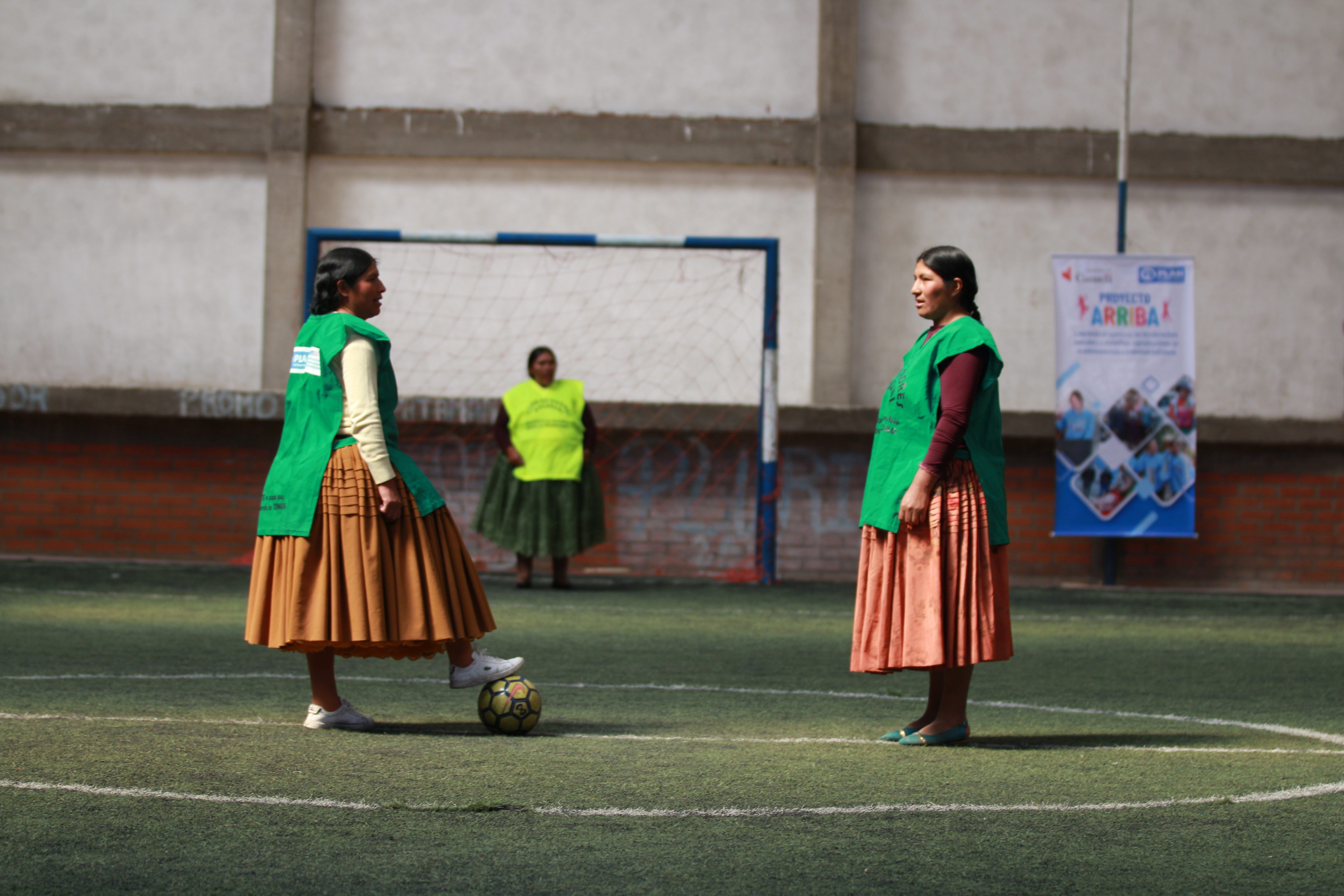

OUR arrIBA PROJECT
IN BOLIVIA

In addition to participating in the beautiful game, the people of Pucarani attend workshops run by Plan International on preventing violence and promoting gender equality.
As a leader of her village’s agrarian centre, Adela is committed to sharing her knowledge and skills, particularly around the issues of family planning and early pregnancy, urgent issues for her community – and the rest of Bolivia, which has the highest newborn mortality rate in Latin America.
Plan International is currently running a five-year project in Bolivia called the ARRIBA project: Achieving Reproductive Rights for Bolivian Adolescents. Its goals are to ensure adolescents and women of reproductive age have more power to exercise their rights to sexual and reproductive health and protection, ensuring there are high-quality maternal, newborn, sexual and reproductive health care and systems in place.
“We don’t need to be afraid. We need to inform ourselves in order to defend ourselves,” says Adela.
• Individual development
• Health promotion and disease prevention
• Promotion of gender equality
• Social integration and the development of social capital
• Peace building and conflict prevention/resolution
• Post-disaster/trauma relief and normalization of life
• Economic development
• Communication and social mobilization
Source: United Nations
Here are some benefits of playing sports:
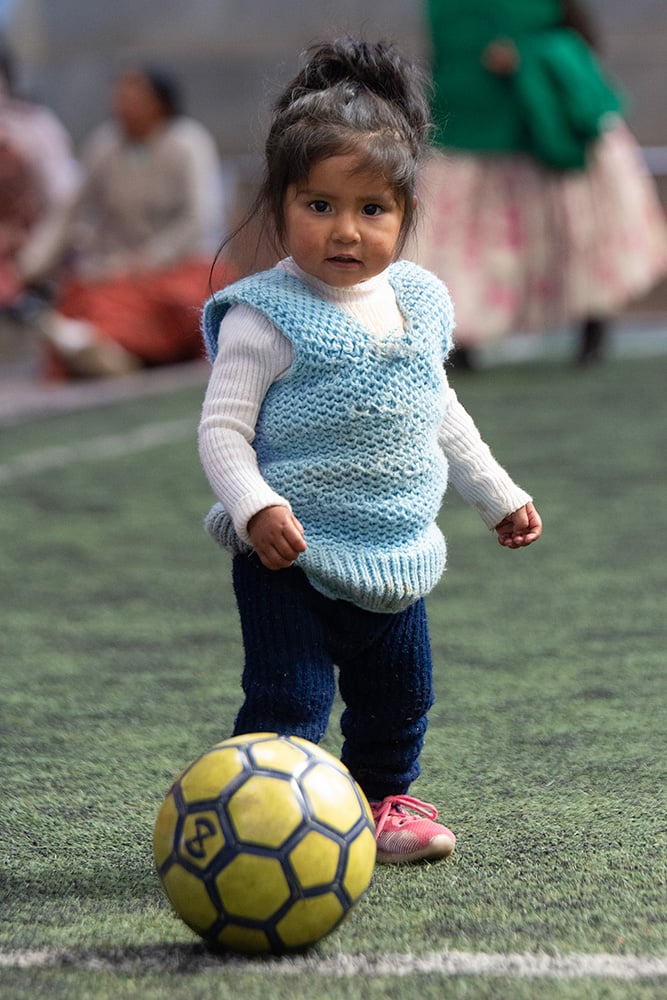
A young girl plays with a soccer ball on a soccer field in Pucarani, Bolivia.

Bolivia is home to South America’s largest proportion of Indigenous people, and when the women play soccer, they do so wearing floor-length polleras, the traditional skirts of the Aymaran and Quechuan women. The national pastime has offered an opportunity for men and women to see that they are equals on, and off, the soccer pitch.
Our gender transformative programming ensures that we are working with adolescents, especially girls, so they can make decisions about their lives, protect themselves from harm and allow them to participate in economic, political and social activities.
Bolivia is famous for its rainforests, deserts, mountains and iconic salt flats. It is also home to two extremes: La Paz is the world’s highest capital city, and Bolivia has one of the highest degrees of income inequality in the world.
The country also has the highest newborn mortality rate in Latin America. It’s estimated that up to two-thirds of infant deaths could be prevented if mothers had access to comprehensive care during childbirth and the first week of their infants' lives.
Gender Transformative Programming in Bolivia

Our gender transformative programming in Bolivia


Source: United Nations

